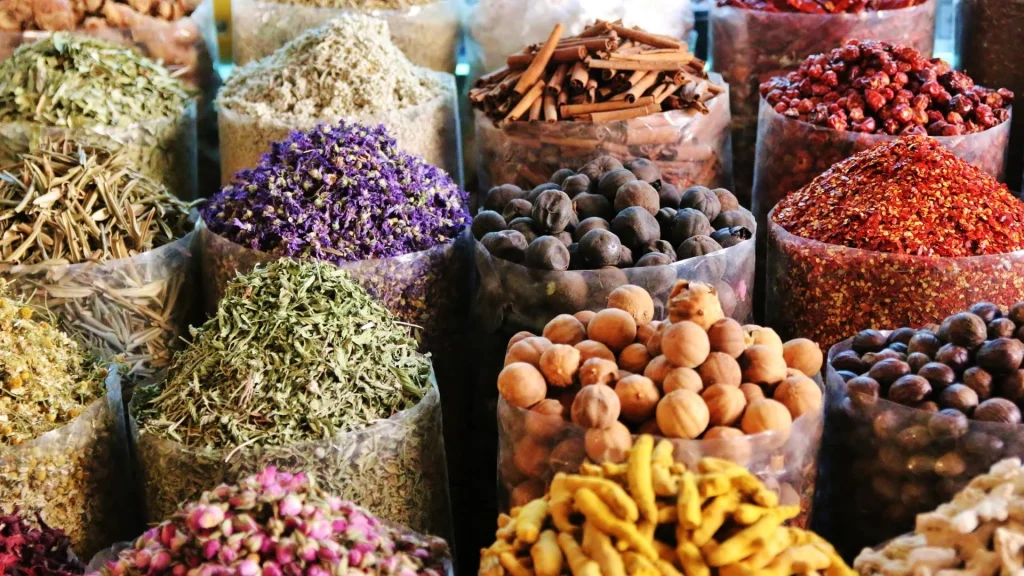Middle Eastern cuisine is one of the oldest and most diverse in the world, known for its bold flavors, aromatic dishes, and rich traditions. At the heart of this culinary culture lies the artful use of spices. More than just seasoning, spices in Middle Eastern cooking reflect history, trade routes, and cultural exchange.

A Tradition Rooted in History
For centuries, the Middle East was a central hub of the spice trade. Caravans carried cinnamon, cloves, nutmeg, and pepper from Asia, while local herbs such as mint, thyme, and sumac added unique regional flavors. These influences shaped a cuisine that is both fragrant and deeply flavorful.

Essential Middle Eastern Spices
Cumin
Earthy and warm, cumin is a key ingredient in dishes like falafel, hummus, and grilled meats.
Sumac
With its tangy, lemon-like flavor, sumac is sprinkled on salads, kebabs, and rice for brightness.
Turmeric
Used for both color and taste, turmeric adds depth to rice dishes and stews.
Cinnamon
Not just for sweets – in Middle Eastern cuisine, cinnamon is used in savory dishes like lamb stews and rice pilaf.
Cardamom
Known for its aromatic sweetness, cardamom is common in desserts, coffee, and spiced teas.
Za’atar
A traditional spice blend made with thyme, sesame seeds, and sumac, za’atar is enjoyed with bread, olive oil, and roasted vegetables.
Beyond Flavor – Cultural Significance
In Middle Eastern culture, spices often symbolize hospitality and warmth. Sharing meals rich in spices is part of social gatherings, religious celebrations, and family traditions.

Final Thoughts
Spices are the soul of Middle Eastern cuisine, transforming simple ingredients into unforgettable dishes. From fragrant rice to grilled meats and hearty stews, the careful use of spices creates the unique and comforting flavors that define the region.
